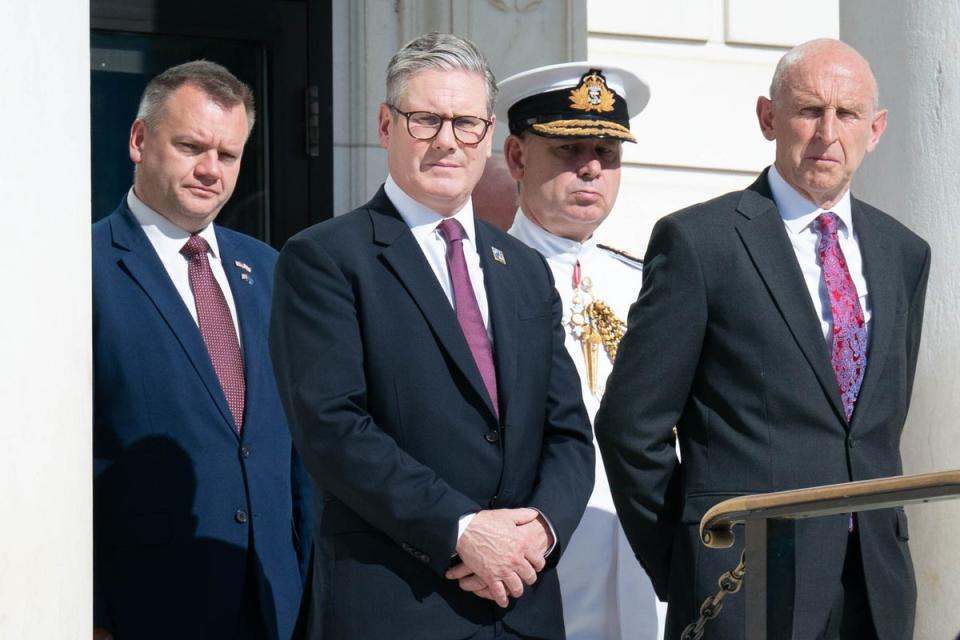Healey warns of ‘a decade or more’ of Russian aggression as he outlines new military deal with EU
Defence secretary John Healey has warned that the west is facing “a decade or more of growing aggression” Vladimir Putin’s Russia as Labour seeks to drawn Britain closer into EU defence arrangements.
The new defence secretary was speaking to journalists at the Nato summit in Washington DC after a series of meetings with the other 31 allies and Ukraine.
Mr Healey has committed to UK £3 billion of aid to Ukraine for the war to be transferred within the first 100 days of the government.
He denied that the UK’s bid to draw back on some of the Tory Brexit arrangements would see the UK joining an EU military force but he confirmed that work on a security pact will start next week when Britain hosts the European Political Council summit.

But crucially, he also confirmed that the UK will seek to join one or two more strands of the EU’s Permanent Structured Cooperation (Pesco), the basis for a EU military structure as the new government redraws Britain’s defence policy and security arrangements.
Reacting to comments from Polish prime minister Donald Tusk’s warning about growing Russian aggression over the last decade, he threw the problem forward into the future.
Mr Healey said: “What is really clear is that we're facing a decade or more of growing Russian aggression. Supporting Ukraine in its ability to win is our first priority. That's why on my second day in the job, I flew to Odesa and spent the afternoon with Zelenksy and his team.
“When we are facing growing threats across the board, the strategic defence review (SDR) is our chance as a new government to get to grips with the threats that we face, the capabilities that we've got, the true state of the armed forces, and of course the finances that may be available.”
He went on: “By conducting an SDR and setting out alongside that a pathway to our commitment to 2.5 per cent on defence, that's the way we balance the requirements of stronger national security with the responsibilities of sound public finances. It needs to be done at pace. It will be done properly so that we can take the difficult decisions and then that becomes the foundation for a successful mission driven Labour government.”
He avoided answering questions on a time table to 2.5 per cent or respond to concerns that the UK should be spending more than 4 per cent of GDP on defence.
But he indicated that the future of UK military spending could be in conjunction with the EU, although he insisted Britain’s defence policy “will always be Nato first”.
The UK is already part of one Pesco scheme on moving military equipment across the EU.
“So we’ve proved we can do it. There are one or two other programmes which may well be programmes in which we have a unique contribution to make and we can get a great deal out of being part of a program like that.
“That does not require any new formal agreement, it does not require a EU-UK security pact in order to do that.”
Sir Keir will host the EPC summit next week which will give a further chance for him to lobby for greater co-operation.
Mr Healey acknowledged that talks on the formal UK-EU security pact sought by the Government were unlikely to start this year.
"In a way the declaration in week one from the new government is seen as significant by the European Union and its members," he said.
“You'll know that the European Union, European Commission takes a good few months to get itself sorted out and so it won't be until the end of the year that it's really in a position to start doing any sort of detailed discussion with us.
“So that's why for me on defence, we can move faster than that, we must move faster than that."
He added: "On defence, we don’t need an EU/ UK pact in order to look at where there may be areas that we can contribute on defence to a stronger European security and actually, it's in our British interests to do a bit more together.”


